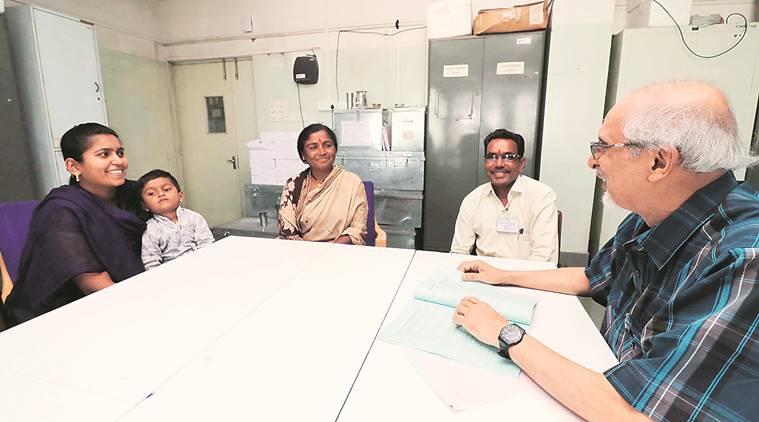
At KEM hospital’s diabetes unit, research to understand why diabetes is so common in Indians led to the Pune Maternal Nutrition Study (PMNS). Now in its 25th year, the study has followed 710 families spanning three generations to track the development of diabetes.
“My mother was enrolled in the study 25 years ago and after I was born, researchers assessed me at age 6, 12 and 18. While I do not have diabetes, to ensure my son is not at risk, he is also part of the study,” said 22-year-old Archana Thite.
She is accompanied by her 42-year-old mother Sangeeta Thite from Kendur village in Shirur tehsil of Pune district and her two and a half year old son Anvay. Like the Thite family, there are several others who will be undergoing a series of clinical tests over the next few weeks as part of the study.
To celebrate the 25th year of PMNS, the diabetes unit at KEM hospital in association with the Medical Research Council, UK, and the Indian Medical Association, Pune branch, is hosting the 3rd David Barker Memorial Symposium on February 9 at Symbiosis Vishwabhavan. It will be inaugurated by Prof S B Mujumdar of Symbiosis. A session on ‘Reversal of lifestyle disorders?’ has also been organised where eminent speakers like Dr Jagannath Dixit, Dr Pramod Tripathi, Dr Jyoti Shirodkar and Dr Jayashree Todkar will speak about different approaches in diabetes and obesity as the average citizen remains confused about different diets and activity regimes.
Dr C S Yajnik, Director of the diabetes unit at KEM hospital, pointed out that over the years the project has made key findings like lower birth weight babies carry higher levels of risk factors for diabetes from early childhood. “We also found that vitamin nutrition of the mothers during pregnancy affects the growth and development of the babies and their future health. Around that time Prof David Barker — who came up with Developmental Origins of Health and Diseases (DOHaD) theory — also made a seminal finding that diabetes is more common in those who are born small. This provided a unique non-genetic explanation for diabetes in Indians because Indian babies are the smallest in the world. This is due to poor maternal nutrition, which hampers growth of the baby,” Dr Yajnik said.
Now with third generation babies being born after the study was launched, the scenario has shifted to unhealthy diets and inactivity, which promote higher levels of glucose in the mother during pregnancy (‘gestational diabetes’). “This has the potential of further increasing the risk of diabetes in the next generation,” Dr Yajnik said.
Babies who were part of the study are now young adults. The study showed that 28 per cent of them had ‘prediabetes’ at age 18, the occurrence higher in boys than girls. Prediabetes was predicted by a combination of being born small (lower birth weight) but growing big later (higher weight at 18), though 50 per cent of them continue to be thin by international standards. These results show that if one is born small, his/her system is unable to tolerate rapid development in later years and hence increases the risk of non-communicable disease like diabetes, blood pressure and heart diseases. The problems of undernutrition in recent past are now being rapidly replaced by the problem of overnutrition, he added.
According to clinical nutritionist and senior research fellow Sonali Wagle, from among the second generation of participants a total of 150 women are married and 140 have babies. At least 15 per cent had gestational diabetes, Dr Yajnik said, adding that compared to their mothers, these women had higher rate of pregnancy-related diabetes. This could have deleterious effects on the baby not only during pregnancy but also in later life. This indicates the need for improving young girls’ health early in life so that their babies are at a lower risk of future problems, Dr Yajnik said.
[“source=indianexpress”]










